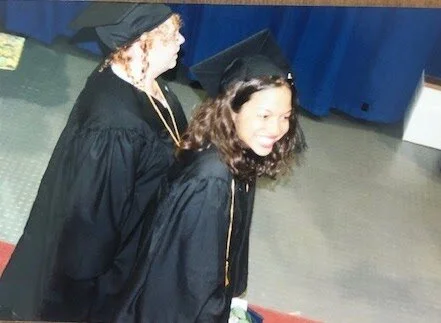In his book, How Children Succeed, Paul Tough makes the argument that academic achievement is an indicator of later success in one’s life, and an indicator to which we give a lot of stock. However, characteristics such as perseverance, self-control and curiosity are better indicators of a person’s ability to navigate through a complex world filled with achievements, happiness and with setbacks, uncertainty and to be pointed, with tragedy.
I grew up in a working poor family. For many, when you grow up in a household where there just are not enough resources to accommodate a comfortable life, setbacks, uncertainty and tragedy are not absorbed as readily as they can be in families that have more structures to accommodate these life situations. To compensate for these consistent stresses and pressure that all families experience, unknown to me, I began to develop deep channels of resiliency and tenacity in my early childhood that is now part of my DNA. Resilience and tenacity became the device that helped me absorb and comprehend problems. Resilience, tenacity was interwoven with other characteristics from my upbringing including a fierce work ethic I observed from my parents. Both of my parents worked long shifts, they worked double shifts, they worked for long stretches of time without a day off to try to make their ends meet for our family and that ethic became my own. Throughout my life, I also fostered curiosity and a general sense of optimism, along with my deep desire for academic pursuit. These characteristics, natural and inculcated, lighted my personal path that led me to become the Executive Director of Food Recovery Network.
Like anyone, many amazing things happened to me during the course of my life that occurred because I worked my butt off (hi undergraduate and graduate degree, I’m looking at you!), and occurred through sheer luck and any combination of those two. I work at Food Recovery Network, and I’ve dedicated my career to the nonprofit sector because I want to minimize the deleterious effects of poverty on children. I want people to be the full panoply of themselves like so many are able to do when their families have the resources to allow themselves and their children to flourish. At FRN, that starts with a meal. In the richest country, the world has ever known, as we currently define that, a meal in the US should be the easiest connection point to our humanity and to nature. When you have a nutritious meal, you can concentrate, you have the energy to play and to absorb setbacks more easily as they come, as they will for all of us.
I’ll talk more about resilience and tenacity in upcoming posts because there is so much to discuss how those characteristics play out in our daily lives, and how, for me, allowed me to become the person I am today, fighting for equality.


